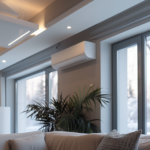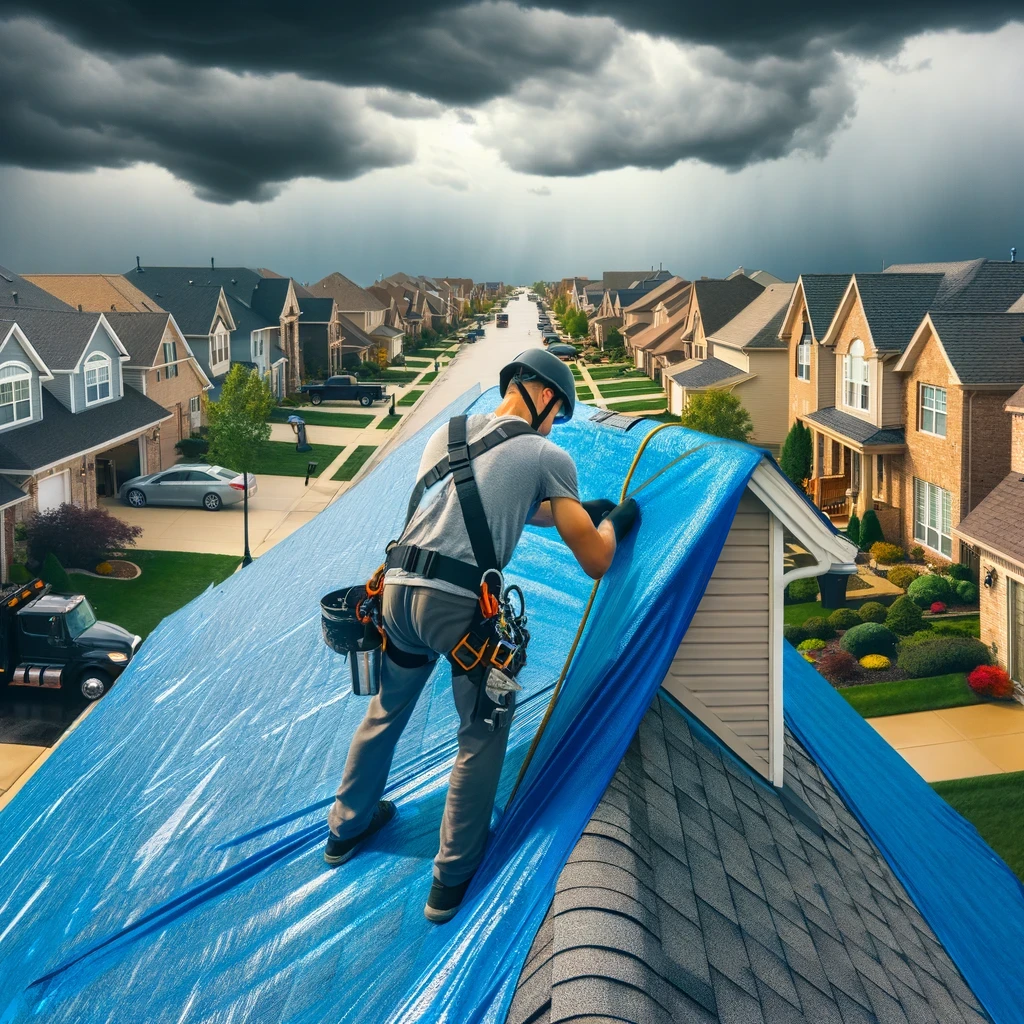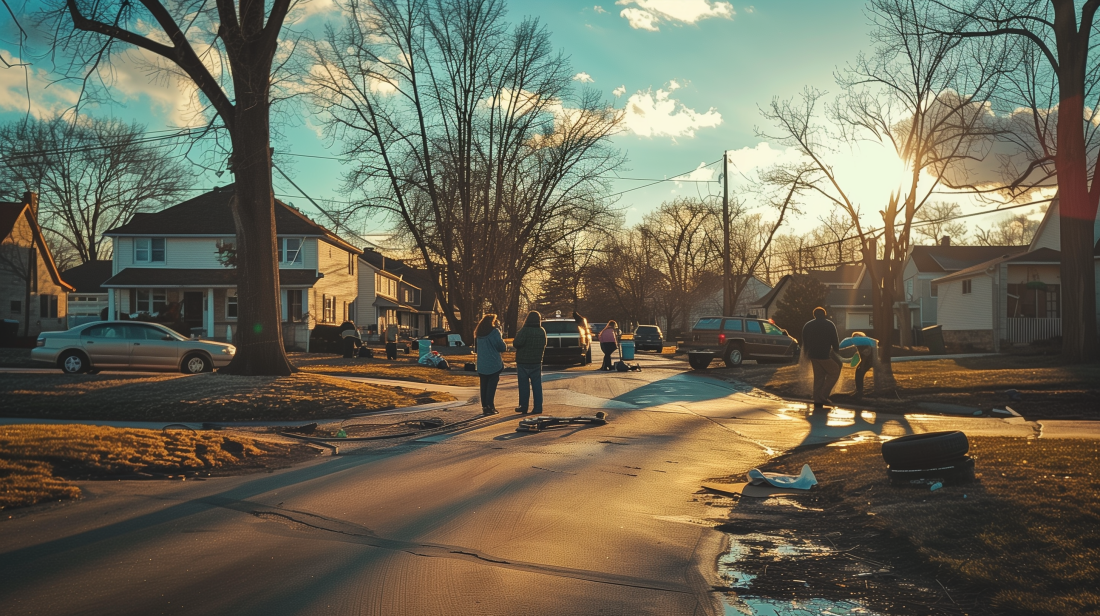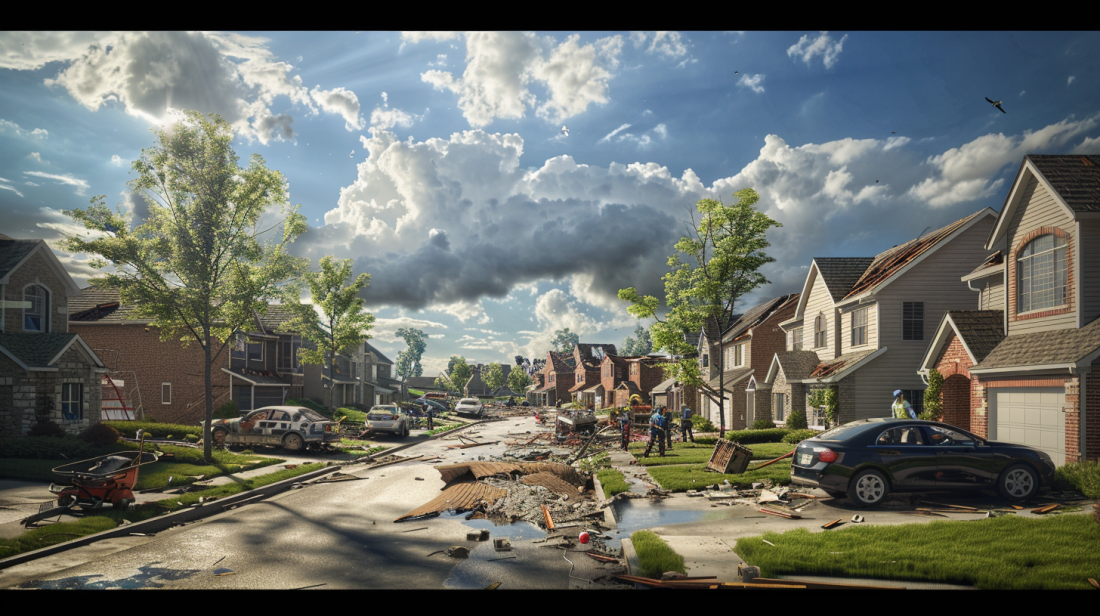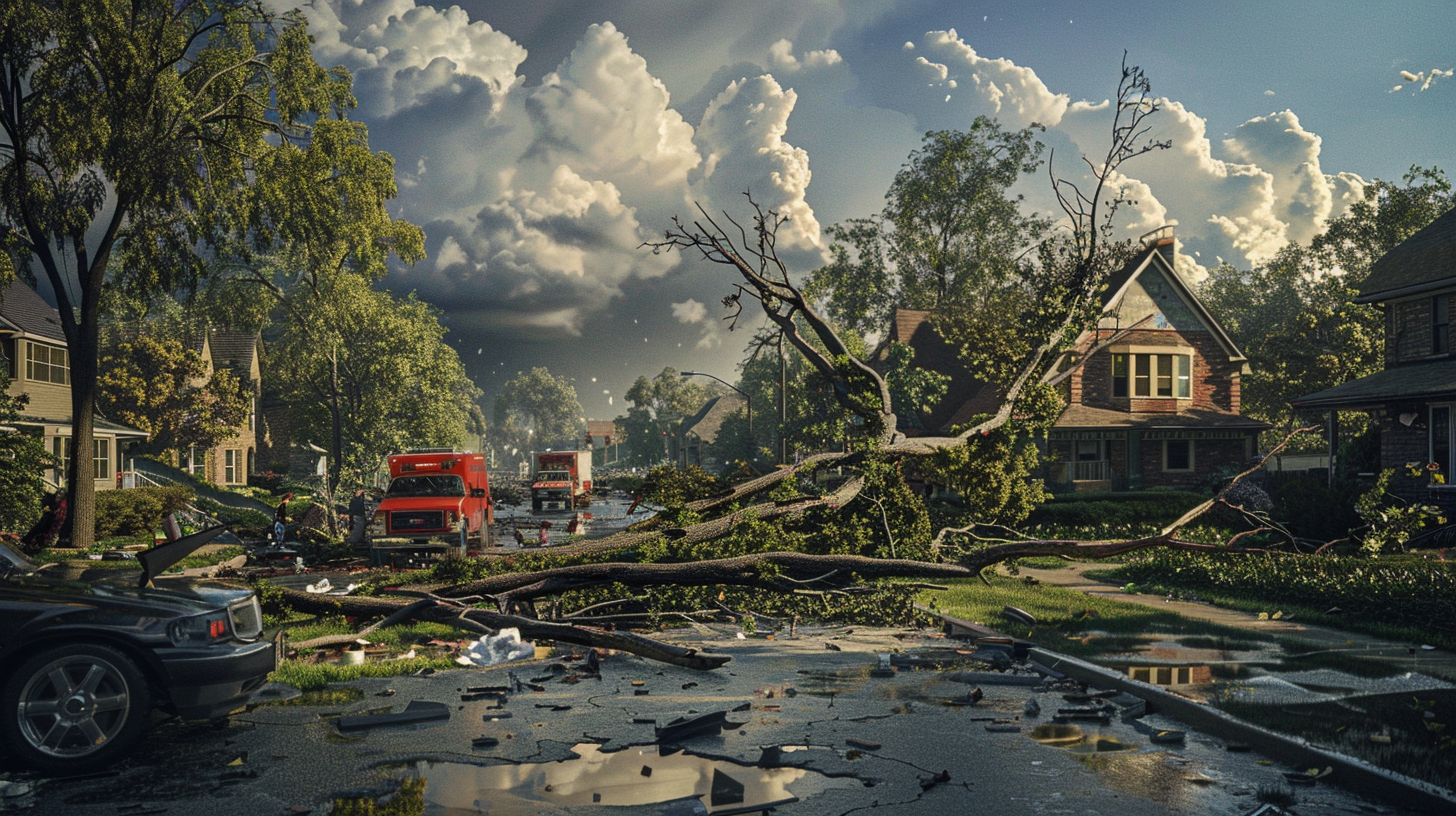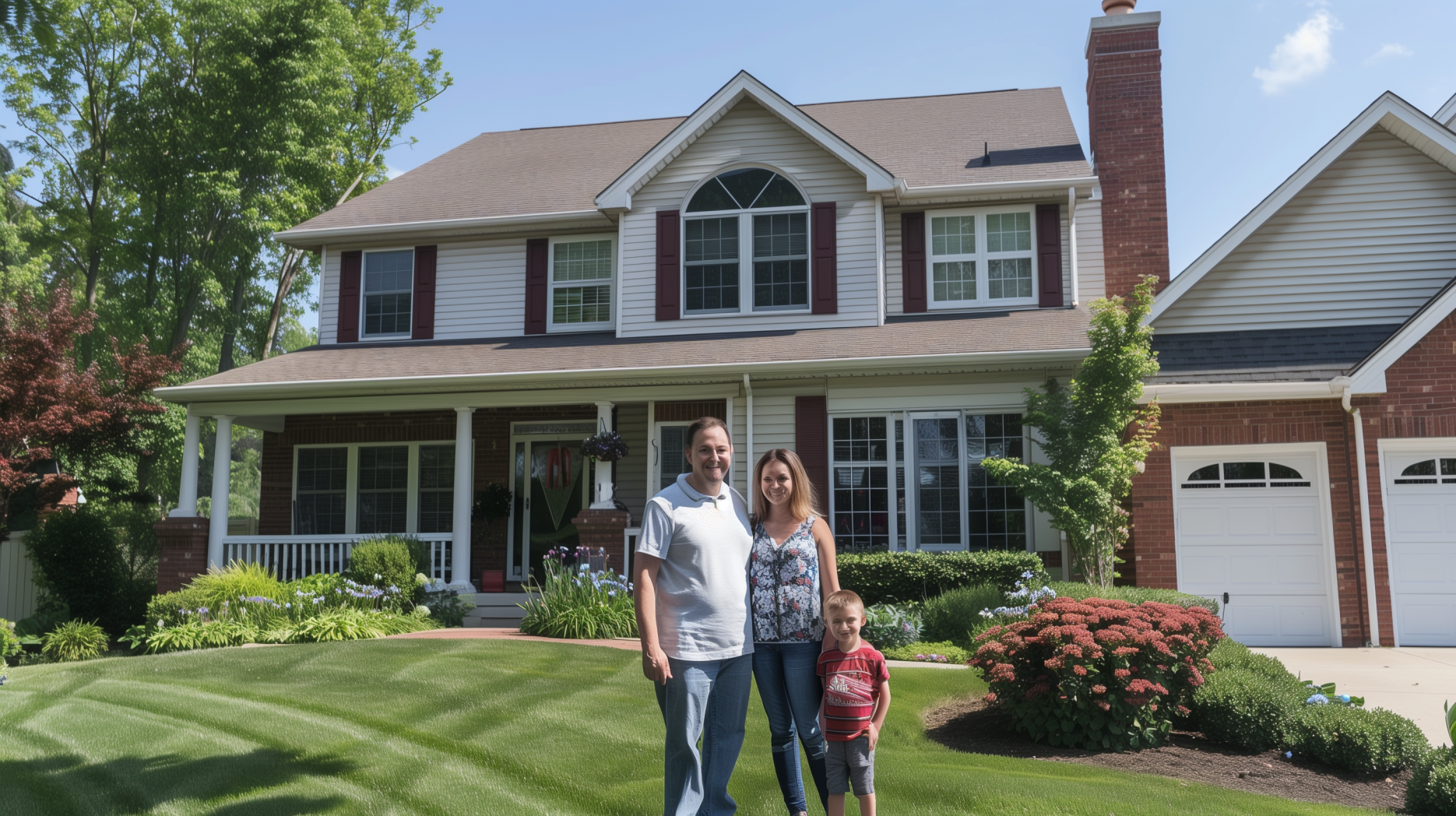Roof Tarping: A Quick Solution to Protect Your Home from Further Damage
When a storm hits, the damage to your roof can compromise your home’s safety and structural integrity. Immediate action is crucial to prevent further damage. Roof tarping is one of the most effective emergency measures homeowners in Illinois can take. This guide provides all you need to know about roof tarping, including its importance, costs, and how it complies with local building codes.
Why Roof Tarping is Essential After a Storm
Quick Protection
Roof tarping serves as a temporary protective measure that shields the exposed areas of your roof from additional damage by weather and debris. This method is crucial for preventing water from entering the home, which can lead to severe issues like mold and structural damage.
Compliance with Building Codes
In Illinois, particularly in areas prone to storms, securing a damaged roof with a tarp is in line with the International Residential Code (IRC), ensuring that temporary repairs preserve the integrity of the building until professional repairs can be made.
How Much Does Roof Tarping Cost in Illinois?
The cost of roof tarping can vary based on the extent of damage and the size of your roof. On average, homeowners might expect to pay between $200 and $500 for professional tarp installation. This price includes the tarp itself, labor, and ensuring that the installation complies with the IRC requirements.
How to Choose the Right Roof Tarp Service
Expertise and Compliance
Select a service provider like Allied Emergency Services, INC., known for adherence to local building codes and standards. Ensure they have a robust understanding of the IRC and use high-quality, durable tarp materials.
Immediate Response
Choose a service provider that offers immediate response services. Speed is critical in emergency situations to minimize damage and secure your home effectively.
FAQ: Common Questions About Roof Tarping
- How long can a roof tarp last?
- Roof tarps are meant for short-term use. Typically, they can last for 90 days, giving you ample time to arrange for permanent roof repairs.
- Is roof tarping a DIY task?
- While it is possible to tarp a roof yourself, professional installation is recommended to ensure it’s done safely and in compliance with building codes.
- Does insurance cover roof tarping?
- Most homeowner insurance policies cover the cost of roof tarping as it is considered a part of the emergency measures to protect the home from further damage.
Conclusion
Roof tarping is a vital, immediate action that safeguards your home from further damage following a storm. For professional roof tarping services that comply with all local building codes, contact Allied Emergency Services, INC.
Contact Information:
Phone: 1-800-792-0212
Email: Info@AlliedEmergencyServices.com
Location: Serving Illinois, Wisconsin, and Indiana with a focus on the greater Chicago area.
Disclaimer: This article is intended for informational purposes only. For professional advice, consult experts in the field. For immediate service or consultation, you may contact us at Allied Emergency Services, INC.




